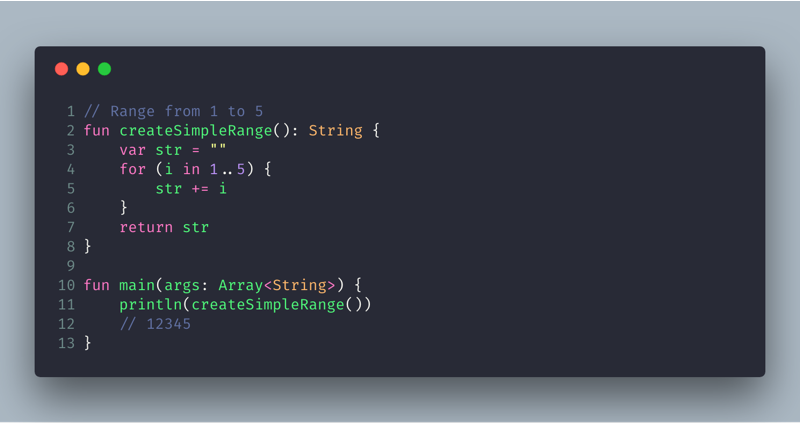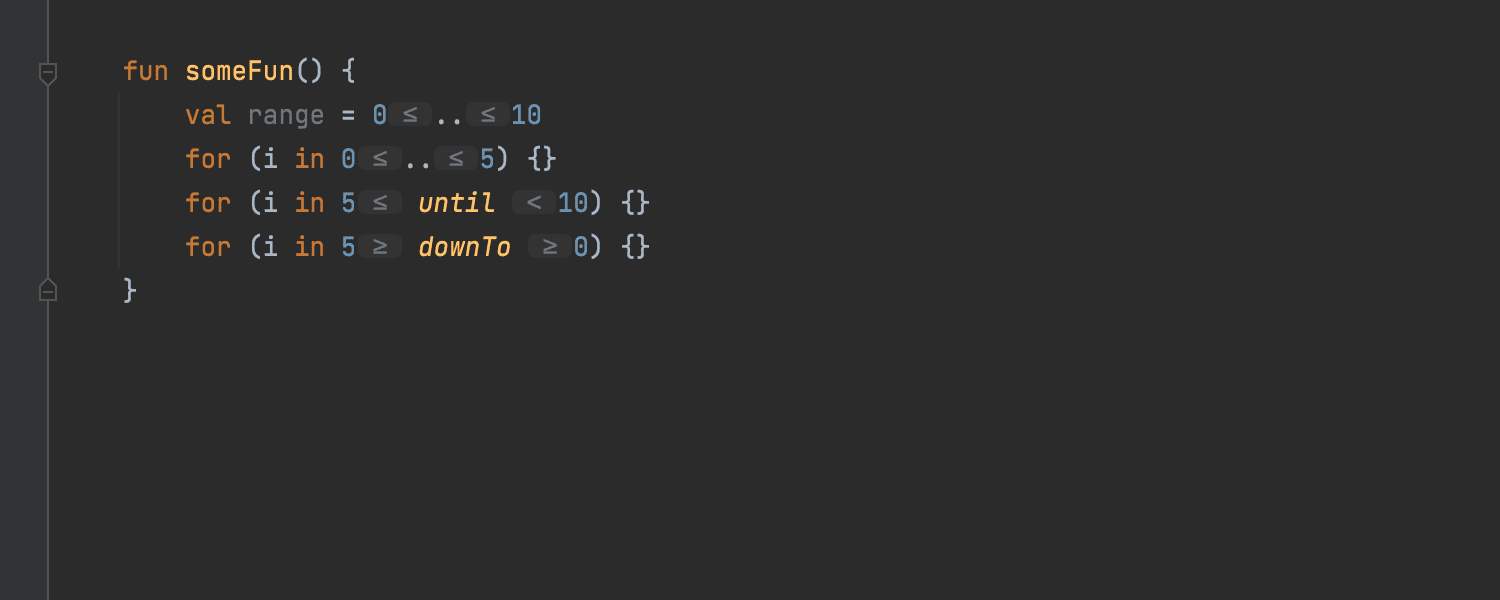

In such way, you can replace the - with =>, which looks like scala. We can use ranges for any comparable type. Using Kotlin Ranges In Kotlin, we can create ranges using the rangeTo () and downTo () functions or the. In this quick tutorial, we’ll have a look at how we can define and use ranges in Kotlin. If you're happy, you can rename the minus function to compareTo and return 0. A range is a sequence of values defined by a start, an end, and a step. In other words, a range is an interval from the start value to the end value. Both the start and end values belong to the range too. Range expressions are created with operator (.) which is complemented by in and. That is, a range of 1 as the start value and 5 as the end value. Kotlin range is defined as an interval from start value to the end value. A simple example would be, the values between 1 and 5 form a range. B - Kotlin range can be created using the rangeTo() and downTo() functions or. A range is a collection of values determined by a start and stop value. You can put the whole expression in the second part, which is OK but seems like unnecessary duplication. The main operation on ranges is contains, which is usually used in the form of in and in operators. A - Kotlin range is a sequence of values defined by a start, an end, and a step.

I tried to find an unbounded range comparison, but couldn't make this work either? Is it possible to write this as an unbounded range? // trying to get an unbounded range - doesn't compile

I'm trying to use the WHEN clause with a > or = >) in a comparison to enable this? val foo = 2


 0 kommentar(er)
0 kommentar(er)
